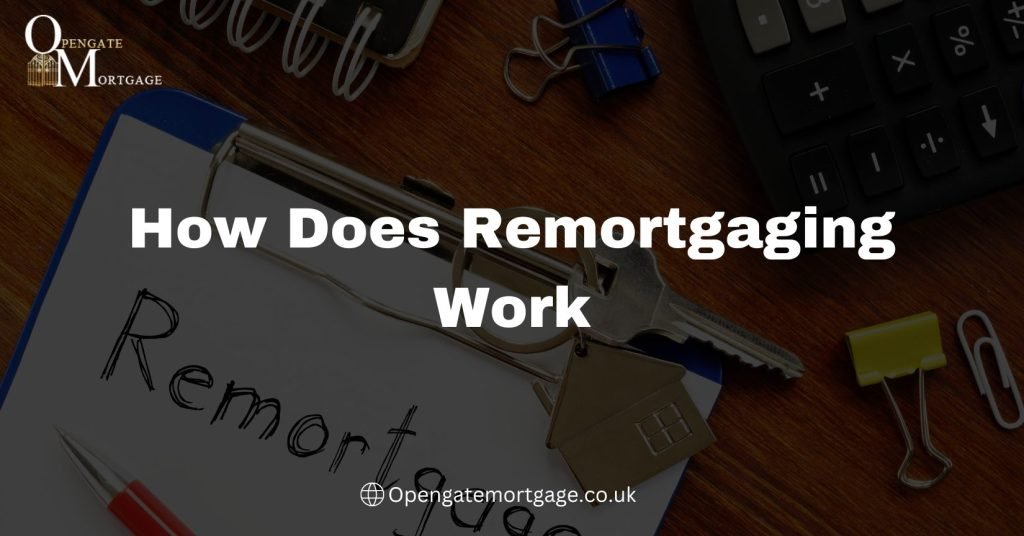As you begin the process of applying for a mortgage to purchase your new home, you want to make sure there are no surprises that could derail your application. One area that often catches borrowers off guard is their existing secured loans, like auto loans or personal loans. While having a secured loan is typically not an automatic disqualifier for a mortgage, the specifics of your loan can impact your application.
Understanding how lenders view secured debts and the steps you can take to mitigate any negative effects will help ensure your mortgage experience goes as smoothly as possible. With some advance planning, you can feel confident your secured loans won’t stand in the way of getting the keys to your new home. In this article you will come to know that how will a secured loan affect my mortgage

How Secured Loans Are Underwritten Differently Than Mortgages
Secured loans, like auto loans or personal loans, are underwritten differently than mortgages. When applying for a mortgage, lenders will evaluate your debt-to-income ratio to determine how much of your income goes toward paying off your existing debts. Secured loans are treated differently in this calculation.
Mortgage lenders view secured loans as less risky since the loan is tied to collateral, like a vehicle or savings account. If you default on payments, the lender can repossess the collateral to recover their loss. Unsecured debts like credit cards, on the other hand, provide no such guarantee.
For mortgages, lenders typically only count a portion of your secured loan payment in your debt-to-income ratio. Often only the interest portion is counted, not the full payment. In some cases, especially if you have a strong down payment, the secured loan may not be counted at all. This can work in your favor by making your debt load appear smaller on paper.
However, the loan balance itself is still considered in evaluating your liabilities and creditworthiness. While the payment may not fully impact your debt ratio, the total amount owed could still influence a lender’s decision. Multiple secured loans or a loan with an exceptionally high balance relative to your income could be a red flag, even if payments are affordable.
In summary, secured loans are underwritten differently for mortgages, with payments often counting less towards your debt ratio. But the total loan amounts are still considered, and too much secured debt can still jeopardize your approval or eligibility for the best mortgage rates. Carefully managing your secured debts and maintaining a strong credit profile is the best approach to getting approved for a mortgage.
How Your Secured Loan Debt Impacts Your DTI Ratio
Your secured loan debt impacts your ability to qualify for a mortgage by affecting your debt-to-income or DTI ratio. Lenders use your DTI ratio to determine if you can afford your mortgage payments while still meeting your other financial obligations.
In general, the lower your DTI ratio the better. Most lenders prefer a DTI of 36% or less for a mortgage approval, meaning your total monthly debt payments should be no more than 36% of your gross monthly income. Your secured loan payments are included in this calculation.
For example, if your total monthly income is $5,000 and your total monthly debt payments including a secured loan are $1,800, your DTI would be $1,800 / $5,000 = 36%. This may make it difficult to qualify for a mortgage since you’re at the maximum threshold. You have a few options to improve your DTI:
- Pay down your secured loan balance to lower the monthly payment prior to applying for a mortgage.
- Increase your down payment to lower the amount you need to borrow. This reduces your mortgage payment and DTI.
- Pay off other debts to offset the impact of the secured loan payment.
Another factor lenders consider is your loan-to-value or LTV ratio which compares your loan amount to the value of the property. If you have significant equity in the asset securing your loan, it may help offset the impact of the debt when applying for a mortgage.
In summary, your secured loan can affect your ability to qualify for a mortgage, but there are steps you can take to improve your financial profile. Paying down debt, increasing your down payment, and building equity in assets are all strategies that can help you overcome the challenges posed by an existing secured loan. With prudent financial planning, you can achieve your goal of homeownership.
The Potential Impact of a Secured Loan on Your Credit Score
A secured loan, such as an auto loan or mortgage, uses collateral (like a vehicle or property) as security for the loan. If you fail to repay the loan, the lender can seize the collateral to recover their loss. Secured loans typically have lower interest rates than unsecured loans since the lender’s risk is lower.
However, taking out a secured loan can impact your eligibility for a mortgage by affecting your credit score and debt-to-income ratio.
Credit Score
When you apply for a secured loan, the lender will check your credit report and score to determine your interest rate and eligibility. This results in a “hard inquiry” on your credit report, which can lower your score by a few points. Multiple hard inquiries in a short period of time can have a greater impact.
The secured loan will also appear as a new account on your credit report, which can lower the average age of your accounts and credit history length, two factors in your score. However, on-time payments will build your payment history over time, which can help boost your score.
Debt-to-Income Ratio
Your debt-to-income or DTI ratio compares your monthly debt payments to your monthly income. Most lenders prefer a DTI of 36% or less for a mortgage. The payments on your secured loan are included in the DTI calculation and can push your ratio over the lender’s threshold, making you ineligible for a mortgage until you pay down other debts.
In summary, while secured loans often have advantages like lower rates, you must consider how one may influence your ability to qualify for a mortgage. Monitoring your credit score, limiting hard inquiries, and keeping your DTI in check can help reduce any potential negative impact. Discussing your options with a financial advisor is also recommended to make the choice that best fits your needs.
Steps You Can Take to Minimize the Impact
If you have recently taken out a secured loan, it may impact your ability to get approved for a mortgage. Lenders view secured loans as a liability, as the collateral you put up for the loan reduces your assets. However, there are steps you can take to minimize how much a secured loan affects your mortgage application.
Pay Down the Loan Balance
Make extra payments on your secured loan to pay down the principal balance as quickly as possible. The lower your loan balance, the less risk for the mortgage lender and the less impact on your debt-to-income ratio. If possible, you may want to consider paying off the secured loan entirely before applying for a mortgage.
Build Your Credit
While paying off your secured loan, continue making on-time payments to build your credit. Payment history is the largest factor in your credit score. On-time payments, especially over an extended period of time, demonstrate your ability and willingness to repay debt responsibly. A good credit score will help offset the effects of the secured loan on your mortgage application.
Lower Your Debt-to-Income Ratio
Your debt-to-income ratio compares your monthly debt payments to your monthly income. The lower your ratio, the better. Make efforts to increase your income by taking a higher paying job or developing skills that qualify you for a raise. You can also lower your debt payments by paying off other high-interest debts like credit cards. A lower debt-to-income ratio shows mortgage lenders you have the means to afford your mortgage payment in addition to your other financial obligations.
By paying down your secured loan balance, building your credit, and improving your debt-to-income ratio, you can reassure mortgage lenders that a secured loan will not prevent you from meeting the demands of a mortgage. Be prepared to discuss the steps you have taken to strengthen your financial profile during the mortgage application process. Your actions can have a meaningful impact on obtaining mortgage approval, even with a secured loan.
Conclusion
To summarize, taking out a secured loan can impact your mortgage application in both positive and negative ways. While a secured loan shows you have experience responsibly managing debt and building your credit, it also means you have more debt obligation which reduces your ability to borrow for a mortgage. As with any financial decision, carefully weigh the pros and cons of taking out a secured loan before proceeding.
If home ownership is your goal, make sure you have a solid plan to pay off the secured loan quickly while maintaining a good payment history. With prudent financial management, you can achieve your dream of owning a home despite having a secured loan. The impact on your mortgage application comes down to how well you handle your financial responsibilities overall. Stay focused on your goals and don’t let short term needs derail your long term plans.
People Ask Questions About Will A Secured Loan Affect My Mortgage
What is a secured loan?
A secured loan is a type of loan that is backed by collateral, typically an asset such as a property or a vehicle. If the borrower fails to repay the loan, the lender has the right to take possession of the collateral to recover their losses.
How does a secured loan affect my mortgage?
Taking out a secured loan can potentially impact your mortgage in various ways. It may affect your ability to qualify for a mortgage, the interest rate you receive, and the overall financial stability of your home ownership.
Will taking out a secured loan affect my mortgage application?
Yes, it can impact your mortgage application. Lenders consider your debt-to-income ratio when evaluating your mortgage application. A new secured loan increases your debt load, which might make it harder to meet the lender’s eligibility criteria.
Can a secured loan affect my mortgage interest rate?
Possibly. If you have a good credit score and manageable debt levels, a secured loan may not significantly affect your mortgage interest rate. However, if you take on a large secured loan or have existing debts, it could lead to a higher interest rate on your mortgage.
Are there specific types of secured loans that affect mortgages differently?
Different types of secured loans can impact mortgages in various ways. For instance, a home equity loan or a home equity line of credit (HELOC) uses your property as collateral, directly affecting your home’s equity and potentially influencing your mortgage terms.







